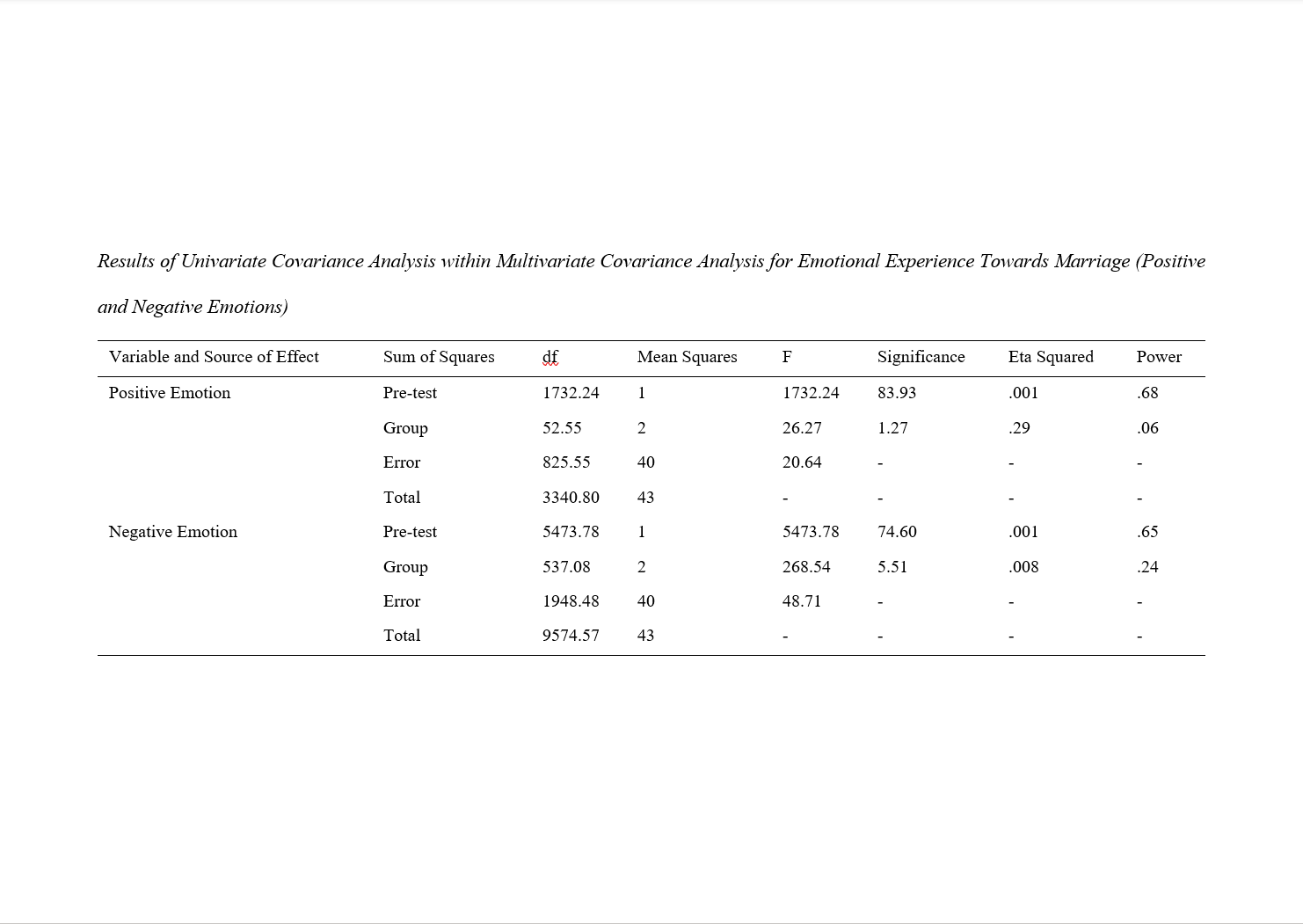Pre-Marital Education Based on Eric Berne's Theory and Expert-Centered Pre-Marital Education on Emotional Experiences Related to Marriage
Keywords:
pre-marital education, negative emotional experience, positive emotional experienceAbstract
Objective: This study aimed to investigate the effectiveness of pre-marital education based on Eric Berne's theory and expert-centered pre-marital education on emotional experiences related to marriage.
Method: The research was quasi-experimental with a pre-test, post-test design, including two experimental groups and one control group. The statistical population comprised all students on the verge of marriage, and the sample included 45 students who were voluntarily selected and randomly distributed into three groups of 15. The research instrument was the Emotional Experience towards Marriage Questionnaire (Yousefi et al., 2023). While the control group was on the waiting list, the experimental groups received eight ninety-minute sessions of pre-marital education based on Eric Berne's theory and expert-centered approach. The collected data were analyzed using descriptive statistics (mean and standard deviation) and inferential statistics (multivariate analysis of covariance).
Findings: The results showed that expert-centered pre-marital education did not improve positive emotional experiences; however, it improved both dimensions of emotional experiences towards marriage.
Conclusions: Based on these results, it can be concluded that pre-marital education based on Eric Berne's theory is stronger than the expert-centered method and has the potential to improve emotional experiences related to marriage.
Downloads

Downloads
Additional Files
Published
Submitted
Revised
Accepted
Issue
Section
License
Copyright (c) 2024 Fahimeh Rahmati (Author); Sayed Esmaeil Mosavi (Corresponding Author); Zahra Yousefi (Author)

This work is licensed under a Creative Commons Attribution-NonCommercial 4.0 International License.




















